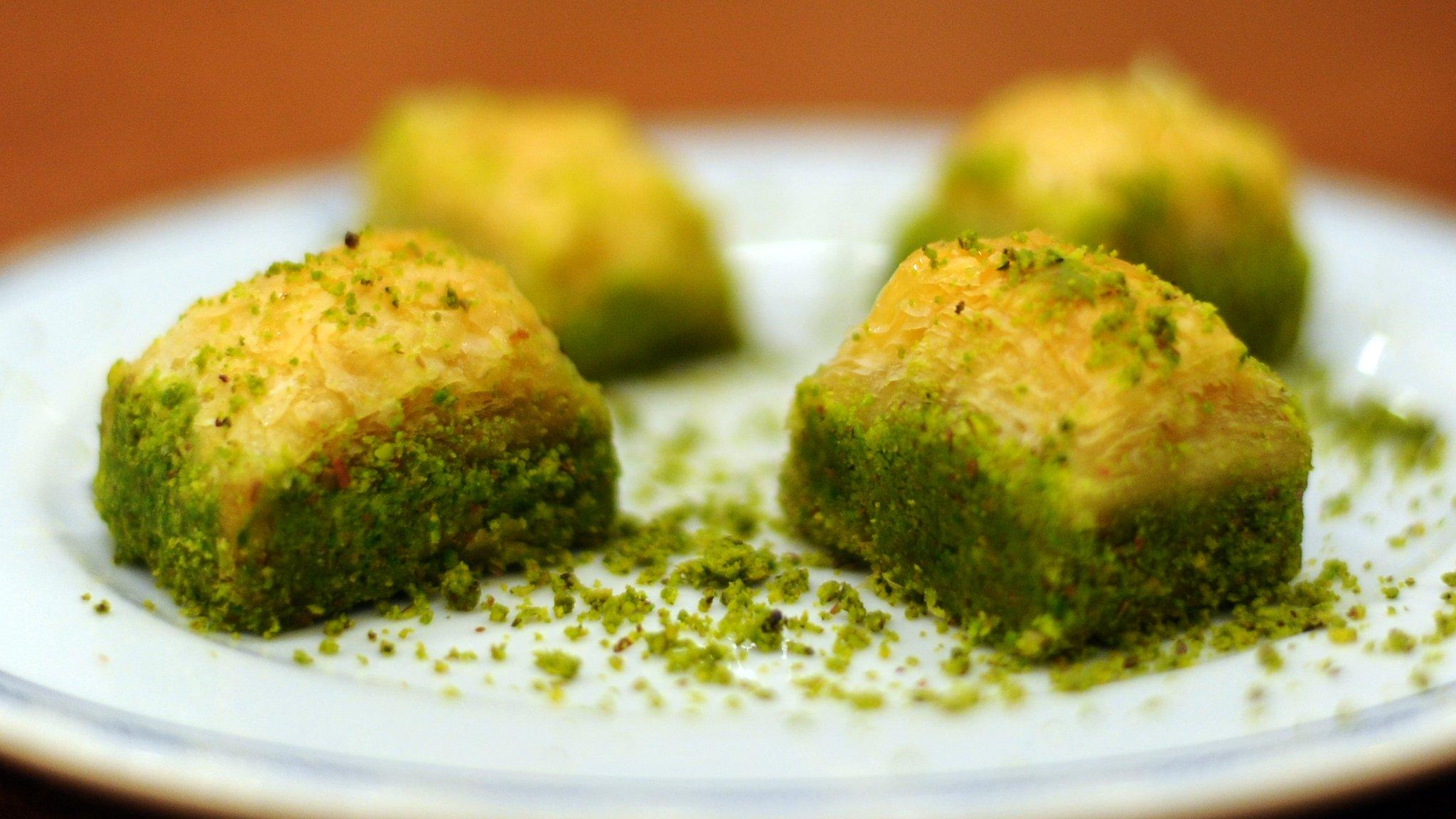Russia lifts sanctions on Turkish food in diplomatic thaw
- Published
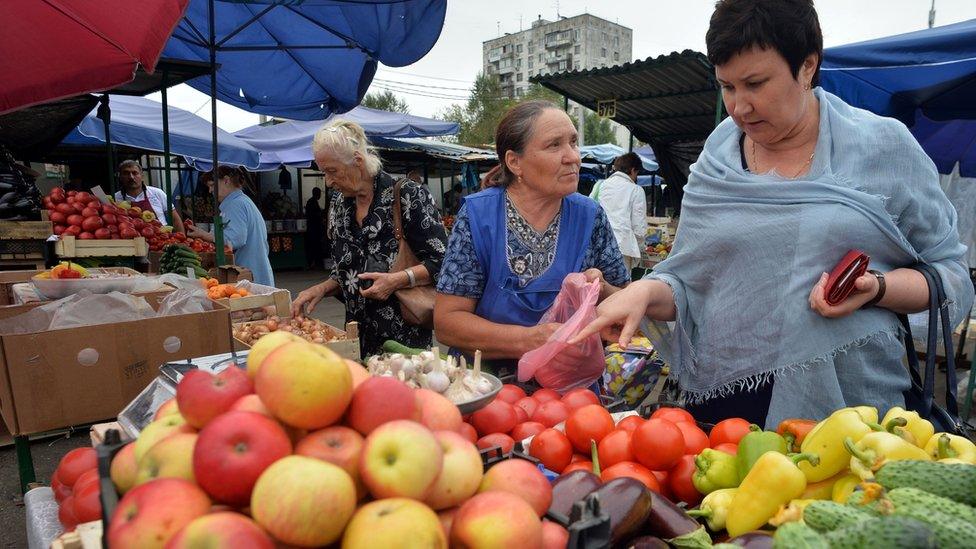
A Moscow market: Turkey can start shipping to millions of Russian consumers again
Russia has lifted a ban on imports of Turkish food, imposed after a Russian bomber was shot down on the Syria-Turkey border in November 2015.
But Russia is keeping seasonal limits on Turkish tomatoes, to help its own producers of sauces and juices.
Before the ban, Turkey exported food to Russia worth more than €1bn (£873m; $1.1bn) annually.
Russia is also lifting a ban, external on Turkish workers in the construction sector, in tourism and in hotel businesses.
The food ban affected many items, including fresh Turkish cucumbers, apples, pears, grapes, strawberries and chicken and turkey offal.
Russia continues to ban imports of most Western food and drink, in retaliation for wide-ranging Western sanctions in place since Russia annexed Crimea in 2014.
Russia's role in the Ukraine conflict led to a tightening of Western sanctions, which also target close aides of President Vladimir Putin.
Russia's military support for Syrian President Bashar al-Assad angered Turkey, which backs Sunni Arab rebels fighting to oust him.
In November 2015 a Turkish F-16 jet shot down a Russian Su-24 bomber on the Turkey-Syria border. There was a dispute over exactly what happened, and it triggered a freeze in Russian-Turkish relations.
The thaw however began after Turkish President Recep Tayyip Erdogan expressed regret over the incident last year. President Putin's first move was to lift a Russian boycott of Turkish holiday resorts.
- Published18 January 2017
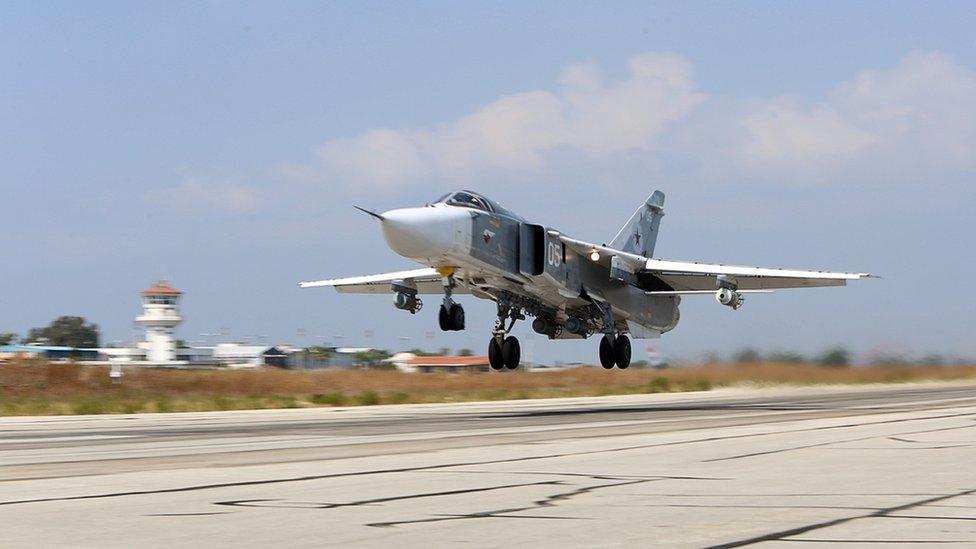
- Published30 June 2016
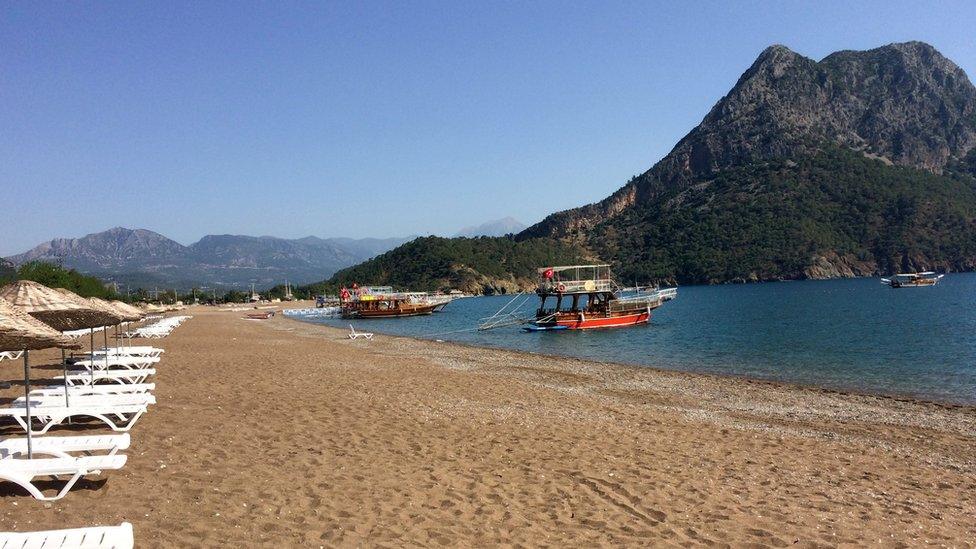
- Published17 June 2016
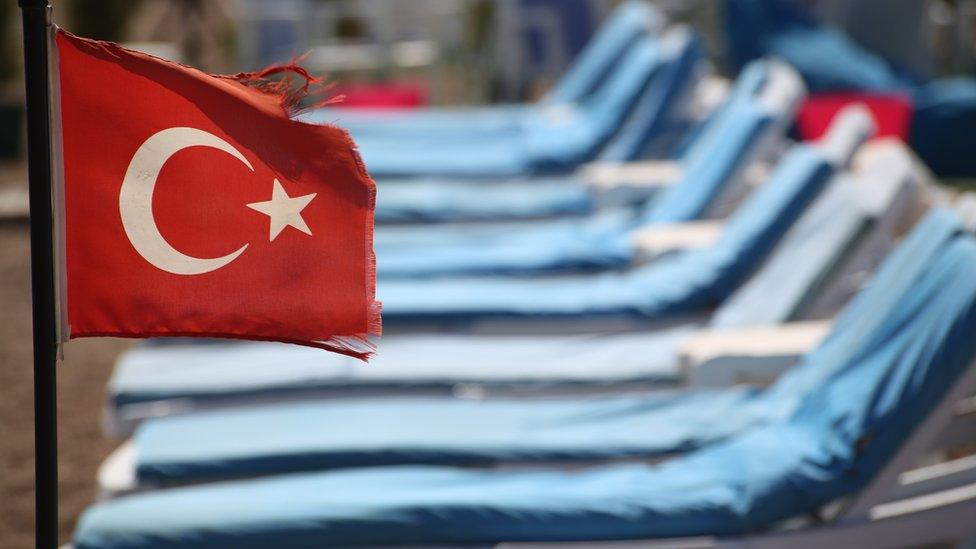
- Published26 November 2015
